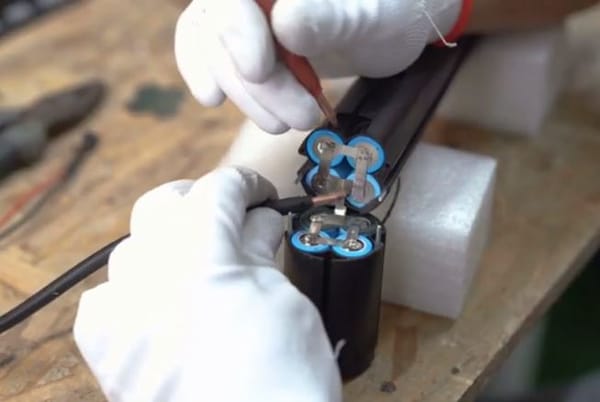
Stanford University research: a new kind of rechargeable battery that could hold far more energy than today’s standard lithium-ion cells.
A new battery startup emerging from Stanford University research, Energia Power Systems, is drawing attention for what it calls a breakthrough in the science of energy storage.
At the heart of Energia’s pitch is a new kind of rechargeable battery that could hold far more energy than today’s standard lithium-ion cells. The company’s founders are building on research from Stanford that successfully created a rechargeable metal-chlorine battery, a chemistry long thought to be too unstable for everyday use. If it works at scale, the technology could dramatically extend the range of electric vehicles, improve the reliability of renewable energy storage, and lower costs across the battery industry.
If it works at scale, the technology could dramatically extend the range of electric vehicles, improve the reliability of renewable energy storage, and lower costs across the battery industry.
For decades, scientists have known that pairing metals like sodium or lithium with chlorine could, in theory, deliver exceptional energy density — meaning more power stored in less space. But these “metal-chlorine” batteries were considered non-rechargeable, as each use caused irreversible chemical changes. Stanford researchers recently found a way to overcome that limitation by developing a special carbon-based material that captures chlorine inside tiny pores, preventing it from escaping as gas and allowing the battery to recharge safely. Energia Power Systems is now taking that laboratory breakthrough into the real world.
According to the company, its prototypes already show promising results: higher voltage, lower cost materials, and stable performance over dozens of charge cycles. The batteries use common and inexpensive elements such as sodium and aluminum trichloride, which could reduce the world’s reliance on rare minerals like lithium and cobalt. Energia says its design is simpler to manufacture than many next-generation batteries now in development, potentially offering a smoother path to scale-up.
The implications could be far-reaching. Affordable, long-lasting batteries are key to unlocking clean energy — storing solar and wind power when it’s abundant and releasing it when needed. They’re also crucial for electric vehicles, drones, and even aerospace applications. Energia claims its chemistry could deliver up to six times the energy density of current lithium-ion batteries, a leap that could redefine what’s possible for energy storage.
Still, the company faces steep challenges ahead. Transforming an early-stage university discovery into a commercial product requires years of engineering, safety testing, and investment. Scaling up any new battery chemistry from the lab to mass production is notoriously difficult. Yet Energia’s founders are optimistic, arguing that their technology’s combination of high performance and low material cost could finally shift the balance.
By opening its fundraising round to the public, Energia hopes to attract early believers to join what it describes as a mission to “redefine the future of power.” Read the pitch deck here.
Comments
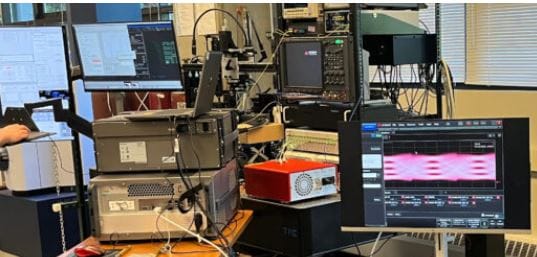
NLM Photonics’ vision is to substantially reduce the power consumption and footprint of high-performance data-centre and AI-training infrastructures by shifting from purely electronic to hybrid photonic-electronic interconnects
Seattle — NLM Photonics, is a Seattle-based startup developing next-generation hybrid organic electro-optic (OEO) photonic modulators At its core, NLM Photonics’ vision is to substantially reduce the power consumption and footprint of high-performance data-centre and AI-training infrastructures by shifting from purely electronic to hybrid photonic-electronic interconnects. The company’s patented Selerion
More Efficient Solar
DESCRIPTION Lens technology increases the efficiency of solar panels. Polycarbonate sheet manipulates light to maximize the good light and addresses the current limitation of solar panels to capture at best 22% of the energy from the sun. PROBLEM Solar panels only capture at best 22% of the energy from the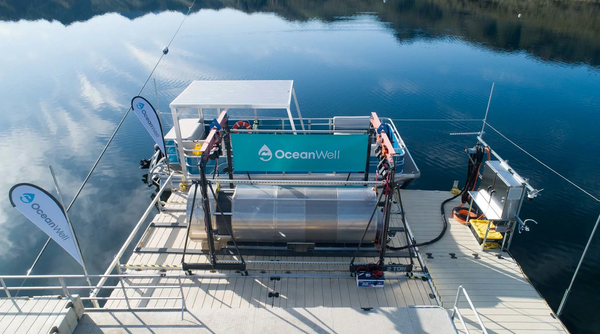
OceanWell Taps Deep Ocean to Redefine Sustainable Desalination
Water scarcity is rapidly becoming one of the most pressing global challenges, driven by climate change, population growth, and declining freshwater reserves. While desalination has long been seen as part of the solution, conventional systems remain energy-intensive, land-heavy, and environmentally controversial. OceanWell is advancing a new approach that rethinks how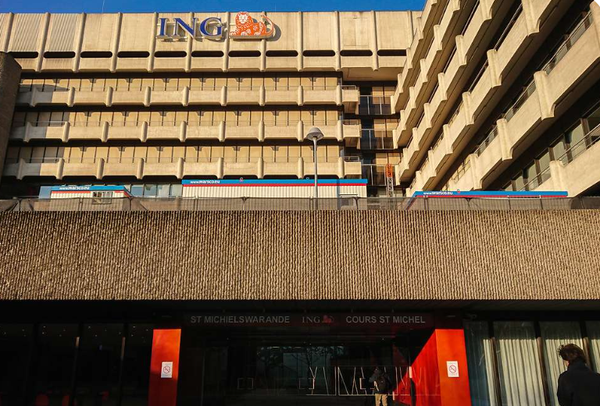
Revolutionizing Water Management: How Technology is Tackling Water Waste in Buildings.
Shayp client ING went live in 2022 and has already saved over 3 million litres per year. In a couple of months, they were able to avoid 473 kg of carbon emissions by just monitoring their water and taking action efficiently.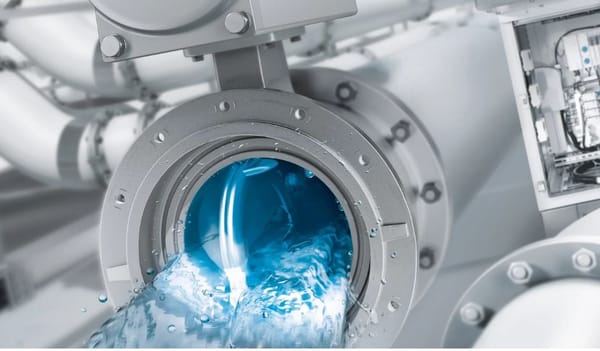
New Ecosystem Resource Directory Launched to Support Water Technology Companies Worldwide
A new Ecosystem Resource Directory is being developed to support water technology companies working to scale breakthrough innovations and proven solutions across the global water sector. The initiative aims to create a comprehensive, practical inventory of resources available to companies navigating the complex journey from innovation to market scale. By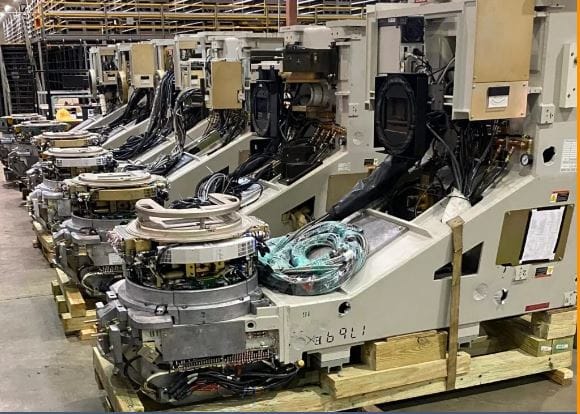
Pulse Industries to Build First Mass-Production Facility for Industrial Linear Accelerators which can be applied to water treatment systems capable of destroying ‘forever’ chemicals.
MARIANNA, FL – Pulse Industries will establish a 278,000-square-foot advanced manufacturing facility at the Marianna Airport Industrial Park, marking a transformative milestone in the mass production of linear accelerator systems. This initiative will create hundreds of skilled jobs and profoundly expand the accessibility of electron beam technology for diverse global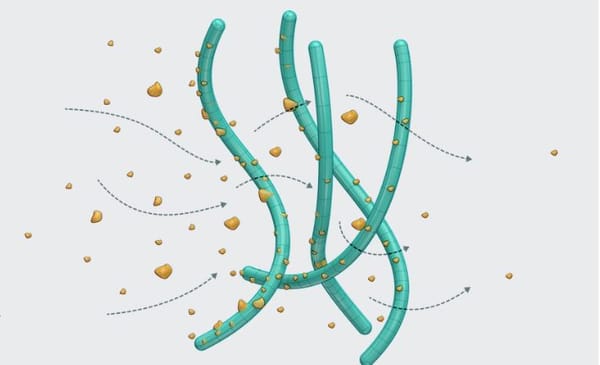
Pilot success at Atlantic County Utilities Authority (ACUA) paves way for full-scale deployment of PolyGone Systems micro-plastic removal technology
Atlantic City, NJ — November 8, 2025 — A year after the grand unveiling of the micro-plastic removal pilot at ACUA’s wastewater treatment facility, the partnership between PolyGone Systems and ACUA is now transitioning into a full-scale implementation phase — marking a significant milestone in the fight against micro-plastic pollution in treated
